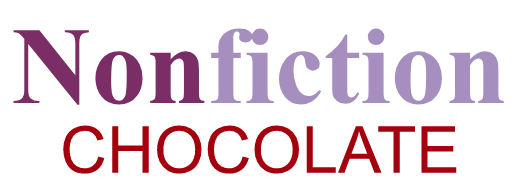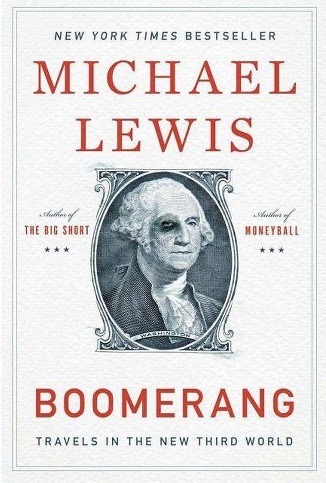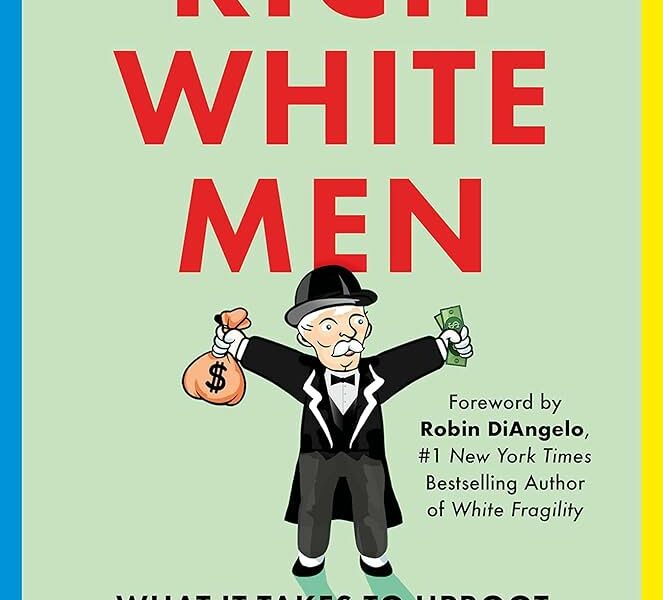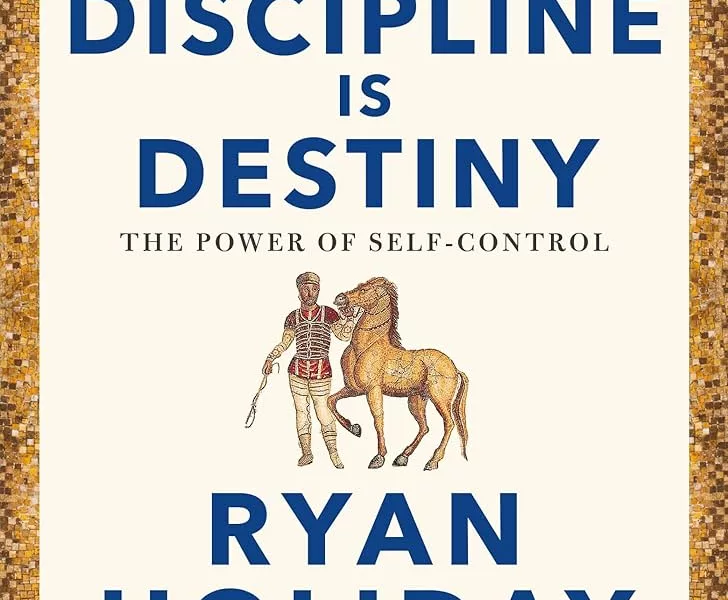Boomerang by Michael Lewis takes readers across the pond and explores how the 2008 financial crisis impacted Iceland, Ireland, Greece, and Germany. This book ends with Lewis coming back to the United States and exploring the smaller county level of American finance.
Pairs With: a Milky Way Chocolate Bar because cheap credit led a lot of people to be starry-eyed dreamers.
Overview
This book is for the reader who understands what happened in America during the 2008 financial crisis and is curious to read about what other countries decided to do with cheap credit.
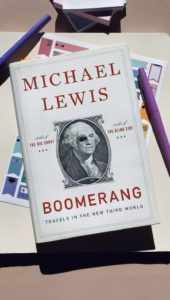
No two countries are the same and it’s fascinating to read about what each country did differently given a similar situation. Written from an American perspective, this book sometimes sounds a bit naive to other cultures and social norms.
For example, Icelandic males might not enjoy being portrayed as inbred brutes who like to play sidewalk chicken and Germans might not like the description of their culture being fascinated with shit. I understand Lewis does this as a way to try to explain why the country responded to cheap credit the way it did however, our tolerance for cultural mockery has advanced since 2011. This may not be the approach Lewis would take today in explaining the financial crisis across different countries.
Iceland
Iceland borrowed money to go acquire land and football teams in other countries. Even though Icelandic people weren’t familiar with investment banking, they went for it anyway. Since assets were appreciating during this time, it appeared as though Icelanders did understand what they were doing! However, unfortunately for Iceland, what goes up must come down. When Lehman Brothers went down, it reminded people of risk and spooked them into being cautious about who they lent money.
Greece
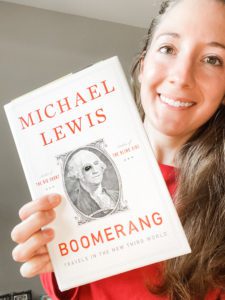
The Greeks have an incredible distrust of one another. Greek citizens won’t pay their taxes because they don’t trust where their taxes are going. Lewis sat down and interviewed anonymous Greek tax collectors who told him that the only way to get fired from the job was by actually collecting taxes. They were not supposed to do their job well and were allowed to take bribes to not collect taxes. You don’t necessarily imagine a European Union country with a corrupt government but Greece may just as well be that.
Ireland
Ireland is a unique case as well. Unlike the Icelandics who borrowed money to buy properties outside of Iceland, the Irish borrowed outside money to invest in Ireland. Consequently, they increased their own land prices which ultimately created what they refer to as “ghost estates.” The Irish had hoped there would be massive immigration to fill their new construction. However, since that didn’t happen, there are villages full of homes that sit empty and uninhabited. Interestingly, the citizens of Ireland signed up to pay off the banks’ debts and poor investments.
Germany
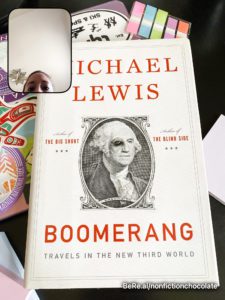
Germany had a deal going into the Euro. If other countries borrowed money they couldn’t repay, Germany wasn’t responsible for bailing them out. However, the Germans were fooled AND ended up making a lot of bad investments. Lewis accredits the Germans’ love of rules as what led them to get duped. The Germans assumed everyone else was also honest and followed the rules. They invested in Icelandic banks and Greek government bonds. They also invested heavily in Irish banks and US subprime mortgage bonds.
Conclusion
This book is worth a read if you enjoyed The Big Short or any of Michael Lewis’ other books. His writing style can be a bit different and, at times, was hard for me to follow. However, I still enjoyed this one and was able to walk away having formed new connections about the global economy and politics.
Have you read this one or any of Lewis’ other works? What other financial book should I pick up next??
P.S. If you enjoyed this book you may also like, Dark Money by Jane Mayer. Dark Money is all about how elite billionaires anonymously control American politics. The controversial Koch brothers take center stage in Mayer’s research.
